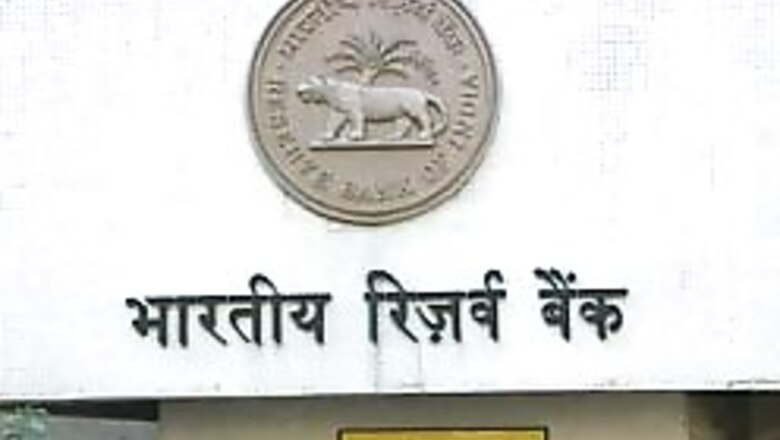
views
New Delhi: Disappointed over the Reserve Bank Of India's (RBI) decision to keep key rates unchanged, Indian industry on Tuesday said it has been deprived of the much-awaited policy thrust to revive demand and moderate the cost of credit.
"It seems that inflation has become the sole concern of the central bank," said VN Dhoot, president of the Associated Chambers of Commerce and Industry of India (Assocham), reacting to the central bank's monetary policy review.
"We fear that the continued policy indifference towards issues of real economy may compel the industry to postpone their investment plans in expectation of a demand slowdown," Dhoot added.
He also expressed concern for the small and medium scale sector, which in the absence of funding from equity markets and competition from cheaper imports was bearing the maximum brunt of a demand slowdown and cost of funds.
In a similar vein, the Federation of Indian Chambers of Commerce and Industry (Ficci) said the interest rates could have been fine-tuned since the revival of industrial and services growth was crucial to the overall economy's performance.
"Along with rising rupee, high interest rates have taken a big toll on several sectors of the economy, particularly the small and medium enterprises," said Ficci president Habil Khorakiwala.
The Confederation of Indian Industry (CII), however, said it well understood the policy stand of the central bank as being "neutral" and deviant from the hawkish stand taken earlier.
The focus on stability is a conservative approach and this is a good stand in these uncertain times, as long as the RBI makes it known that it can take any action pertaining to the key rates if the situation demands, CII said.
A cut in the bank rate, the PHD Chamber of Commerce and Industry said, would have reinforced the growth momentum by reversing the negative deviations from the trends in the industrial sector and also contributed to the stability of investment flows.
"We were also expecting the cut of 25 basis points in the repo rate, since the gap between the repo and reverse repo has been quite high at 175 basis points," said PHD Chamber president LK Malhotra.
The Federation of Indian Export Organisations (FIEO), the umbrella lobby group for exporters, feared that the interest rate cuts by other central banks would lead to large capital inflows and strengthen the Indian rupee further.
Given the decline in industrial growth from 11 per cent a year ago to 9.5 in the first half of 2007-08, coupled with a fall in the expansion of India's exports demanded the rationalisation of credit rates by the central banks.
"Unfortunately, the RBI did not exhibit the required boldness by reducing interest rate by about 75 basis points," said FIEO president Ganesh Kumar Gupta.
Giving the example of the Philippines, he requested the policymakers to consider an apportionment of low-cost dollar loans to exporters among small and medium enterprises, or to establish a hedge fund to neutralise rupee appreciation.

















Comments
0 comment